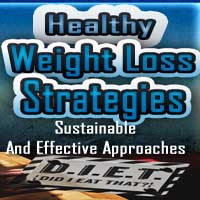


Empowering Individuals For A Better Future

Health education is an invaluable tool for individuals and communities seeking to achieve and maintain optimal well-being. It encompasses a wide range of topics and practices designed to promote healthy lifestyles, prevent illness, and provide individuals with the knowledge and skills they need to make informed decisions about their health. In this article, we'll delve into the significance of health education, its key components, and the benefits it offers to individuals and society as a whole.
Understanding Health Education
Health education is not limited to classrooms or formal settings; it occurs in various forms throughout our lives. It can be as simple as a conversation with a healthcare professional, reading an informative pamphlet, or participating in community wellness programs. Its primary goal is to raise awareness, increase knowledge, and foster healthy behaviors.
Key Components Of Health Education
Nutrition: Understanding the importance of a balanced diet, portion control, and the impact of different foods on health is fundamental to good nutrition.
Physical Activity: Encouraging regular exercise and its role in maintaining a healthy weight, reducing the risk of chronic diseases, and enhancing mental well-being.
Disease Prevention: Educating individuals about vaccinations, safe practices, and lifestyle choices that can prevent illnesses like HIV, STDs, and cancer.
Mental Health: Destigmatizing mental health issues, promoting self-care, and providing coping strategies for stress, anxiety, and depression.
Substance Abuse: Raising awareness about the risks associated with alcohol, tobacco, and drug use, and supporting addiction prevention and recovery.
Sexual Health: Providing information on safe sex, family planning, and reproductive health.
Benefits Of Health Education
Empowerment: Health education empowers individuals with the knowledge and skills they need to take control of their health, make informed decisions, and advocate for themselves in healthcare settings.
Prevention: It plays a critical role in disease prevention, reducing the burden on healthcare systems, and improving overall public health.
Lifestyle Improvement: By promoting healthy behaviors, health education helps individuals adopt and maintain better lifestyles, leading to improved quality of life.
Reduced Healthcare Costs: Educated individuals are more likely to seek early treatment and manage chronic conditions effectively, which can lower healthcare costs in the long run.
Informed Decision-Making: Informed individuals are better equipped to navigate the complexities of the healthcare system, including choosing appropriate insurance and understanding treatment options.
Community Health: Health education contributes to healthier communities by reducing the prevalence of diseases, promoting healthy behaviors, and fostering a culture of wellness.
Health education is a vital component of public health and individual well-being. It equips people with the knowledge and tools needed to lead healthier lives, make informed healthcare decisions, and contribute to the betterment of their communities. It's not just about understanding the importance of health; it's about taking proactive steps to live a healthier and happier life. In an age where information is readily available, promoting health education remains an essential aspect of our journey towards a healthier and more empowered society.
Nurturing Strong Bonds
 Long-Term Bonding: Resilient relationships are more likely to withstand the test of time. By learning to adapt to each other's changing needs and circumstances, couples and families can build enduring bonds.
Long-Term Bonding: Resilient relationships are more likely to withstand the test of time. By learning to adapt to each other's changing needs and circumstances, couples and families can build enduring bonds.
Practical Strategies For Building Resilience In Relationships
Effective Communication: Open, honest, and empathetic communication is the foundation of resilient relationships. Encourage active listening and express feelings and concerns constructively.
Conflict Resolution Skills: Learn how to resolve conflicts in a healthy way. Use "I" statements to express your feelings and avoid blaming. Seek compromise and solutions that benefit both parties.
Emotional Intelligence: Develop emotional intelligence by recognizing and managing your emotions and those of your loved ones. Understanding and regulating emotions can prevent unnecessary conflict.
Quality Time: Spend quality time with your loved ones. These shared experiences create a sense of togetherness and strengthen your connection.
Respect Boundaries: Respect each other's boundaries and individuality. It's crucial to give each person the space and autonomy they need.
Adaptability: Understand that life brings change, and relationships must adapt. Flexibility and a willingness to adjust to new circumstances are key to resilience.
Problem-Solving: Work together to find solutions to challenges. Instead of dwelling on problems, focus on identifying actionable steps to address them.
Positive Reinforcement: Acknowledge and celebrate successes and milestones in your relationship. This positive reinforcement can boost morale and create a sense of accomplishment.
Seek Professional Help: If a relationship faces significant challenges, consider seeking the guidance of a therapist or counselor. They can provide valuable tools and insights for building resilience.
Nurturing Mind, Body, And Spirit
 Physical Health
Physical Health
The body is our physical vessel, and it deserves care and attention. Holistic wellness emphasizes proper nutrition, regular exercise, and sufficient rest. A well-balanced diet provides essential nutrients, exercise strengthens the body, and quality sleep allows for physical recovery.
Spiritual Connection
Holistic wellness includes nurturing the spirit, which is not confined to religious beliefs but pertains to a deeper connection with something greater than ourselves. This connection provides a sense of purpose, inner peace, and emotional strength.
Holistic Practices For Wellness
There are numerous holistic practices that promote well-being:
Meditation: Meditation cultivates mindfulness, reduces stress, and enhances emotional well-being.
Mindful Eating: Practicing mindful eating allows you to savor the flavors and textures of your food, promoting a healthy relationship with nutrition.
Yoga: Yoga combines physical postures, breathing exercises, and meditation to enhance both physical and mental health.
Nature Connection: Spending time in nature can provide grounding, relaxation, and a deep sense of connection with the natural world.
Energy Healing: Practices such as Reiki and acupuncture focus on the body's energy flow to promote physical and emotional balance.
Bridging Tradition And Science
 Evidenced-Based Herbal Medicine
Evidenced-Based Herbal Medicine
One of the most significant developments in modern herbal knowledge is the growing body of scientific evidence supporting the efficacy and safety of herbal remedies. Researchers are conducting clinical trials and studies to investigate the therapeutic properties of specific herbs, validating many traditional uses. For instance, herbs like St. John's Wort have demonstrated their effectiveness in treating mild to moderate depression.
Herbs In Complementary Medicine
Modern healthcare is increasingly embracing the concept of complementary medicine, where herbal knowledge is integrated into conventional treatments. Many healthcare practitioners recommend herbal supplements alongside conventional medications to enhance treatment outcomes and minimize side effects.
Holistic Health And Herbal Medicine
Herbal knowledge aligns well with the principles of holistic health. It recognizes the interconnectedness of physical, emotional, and mental well-being. Herbal remedies are often employed to address not only physical symptoms but also the root causes of ailments, which can include stress, poor diet, or emotional imbalances.
Herbs For Chronic Conditions
Herbal medicine is gaining recognition for its role in managing chronic conditions. Conditions like diabetes, hypertension, and arthritis can often be improved with the use of specific herbs. For instance, cinnamon has shown promise in helping regulate blood sugar levels in individuals with diabetes.
Natural Remedies For Mental Health
Herbs are increasingly used in the management of mental health conditions. Plants like lavender, chamomile, and valerian are valued for their calming and anxiety-reducing effects. They offer a gentler alternative to pharmaceuticals for individuals seeking natural solutions to anxiety, stress, and depression.
Safety And Regulation
As herbal remedies become more popular, it's essential to address safety and regulation. Many countries have regulatory agencies that oversee the production and sale of herbal supplements, ensuring quality and safety. Additionally, consulting with a qualified herbalist or healthcare practitioner is crucial to avoid potential interactions with medications and ensure proper dosing.






 3. Legumes And Pulses: Legumes, such as lentils, chickpeas, and beans, are excellent sources of plant-based protein, fiber, and essential vitamins. They make versatile and nutrient-rich additions to gluten-free meals, contributing to body nourishment.
3. Legumes And Pulses: Legumes, such as lentils, chickpeas, and beans, are excellent sources of plant-based protein, fiber, and essential vitamins. They make versatile and nutrient-rich additions to gluten-free meals, contributing to body nourishment.
4. Nutrient-Dense Snacks: Gluten-free snacking doesn't have to mean indulging in processed chips and sugary treats. Opt for nutrient-dense snacks like nuts, seeds, Greek yogurt, or gluten-free granola to keep your energy levels steady and nourish your body between meals.
5. Gluten-Free Baking: Gluten-free flours, like almond flour, coconut flour, and tapioca flour, can be used to make delicious baked goods. You can still enjoy muffins, pancakes, and cookies while nourishing your body and avoiding gluten.
6. Lean Proteins: Protein is vital for muscle health and overall well-being. Incorporate lean proteins like poultry, fish, tofu, and legumes into your diet to ensure that your body receives the necessary amino acids.
7. Dairy Or Dairy Alternatives: Dairy products like milk, cheese, and yogurt (if tolerated) provide calcium and protein. If you're lactose intolerant or choose to avoid dairy, there are various dairy alternatives available, such as almond milk or coconut yogurt.
8. Micronutrients: Pay attention to getting a variety of micronutrients in your gluten-free diet. Vitamins and minerals are crucial for overall health. Make sure your meals include a spectrum of colorful fruits and vegetables to maximize the diversity of nutrients your body receives.
9. Hydration: Proper body nourishment includes staying well-hydrated. Water is essential for digestion, circulation, and overall health. It's gluten-free and a fundamental part of maintaining your well-being.
 Berries: Blueberries, strawberries, and raspberries are loaded with antioxidants, such as flavonoids, which have anti-inflammatory properties and can enhance your immune response.
Berries: Blueberries, strawberries, and raspberries are loaded with antioxidants, such as flavonoids, which have anti-inflammatory properties and can enhance your immune response.
Garlic: This pungent bulb not only adds flavor to your dishes but also contains allicin, a compound with immune-enhancing properties. Garlic has been used for centuries for its potential to reduce the severity of colds and flu.
Ginger: Ginger is well-known for its anti-inflammatory and antioxidant effects. It can help reduce inflammation and support the immune system.
Turmeric: Curcumin, the active compound in turmeric, has powerful anti-inflammatory and antioxidant properties. It can help the immune system fight off various infections.
Yogurt: Probiotics found in yogurt and other fermented foods support the gut microbiome, which is closely linked to the immune system. A healthy gut promotes a strong immune response.
Spinach: This leafy green is rich in vitamin C and contains numerous antioxidants and beta-carotene. These nutrients work together to support the immune system.
Almonds: Almonds are a great source of vitamin E, an antioxidant that's crucial for maintaining a healthy immune system. It's also good for your skin.
Green Tea: Green tea is packed with flavonoids, particularly epigallocatechin gallate (EGCG), which enhances immune function and has antiviral effects.
Mushrooms: Varieties like shiitake, reishi, and maitake mushrooms contain beta-glucans, compounds that can boost the activity of natural killer cells and other immune cells.